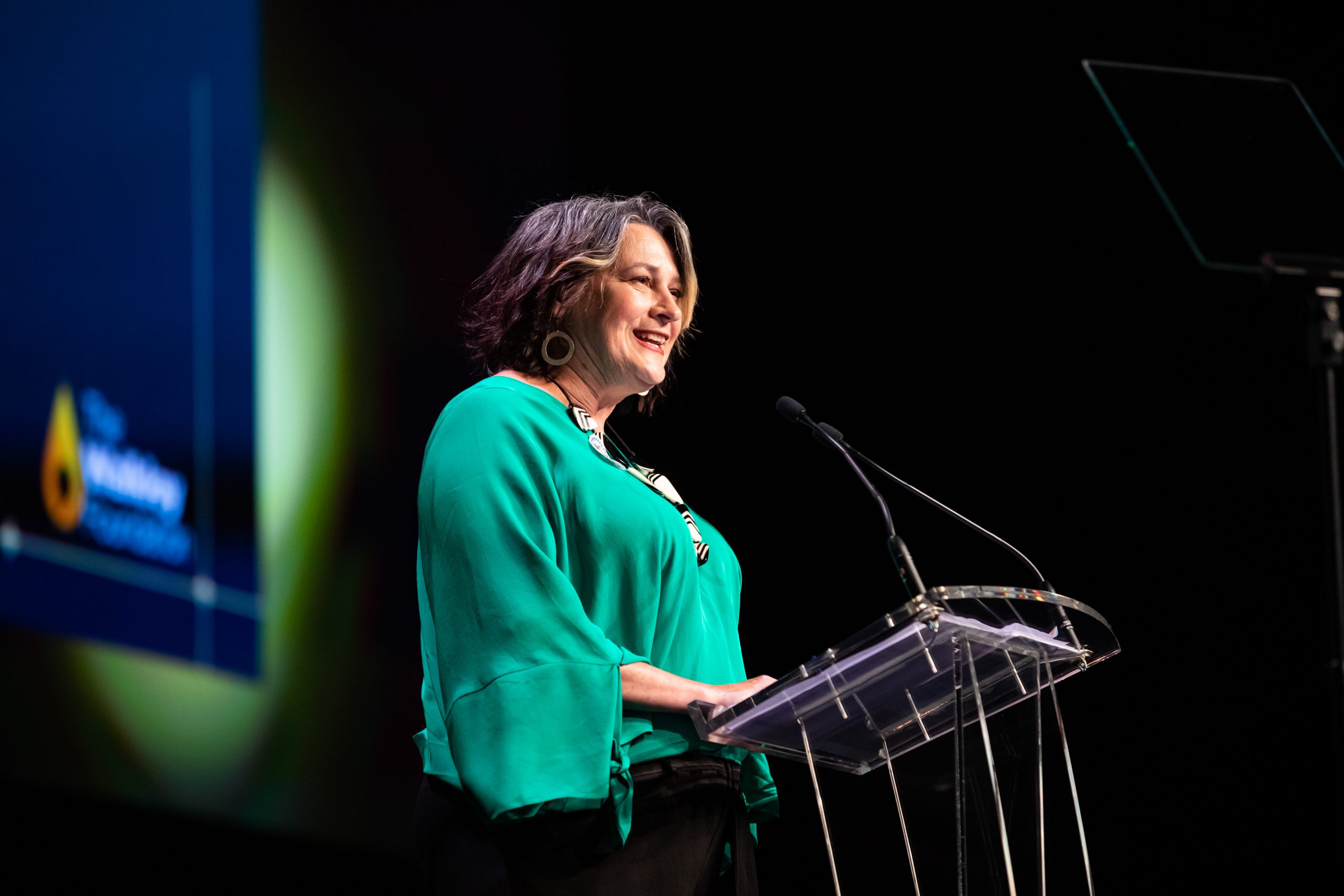On November 17 Karen Percy gave a speech at the 67th Walkley Awards for Excellence in Journalism, in her capacity as the federal president of MEAA’s National Media Section. Karen is also deputy chair of the Walkley Foundation Board of Directors, and spoke passionately about honouring the ethics at the heart of our craft in order to build back trust with readers and viewers.
I want to acknowledge our First Nations people. I was born on Kaurna land, I work on Bunurong and Woi Warrung land… and tonight of course we are on Gadigal land and so I pay tribute to the First Nations leaders and their lengthy custodianship of the land and sea here.
I want to also pay my respects to our First Nations colleagues and MEAA members across the country and of course in this room, who come from a very, very, very long line of story-tellers. This country’s original storytellers.
Congratulations everybody on another great year of stories well told, scoops revealed, inquiries launched, the vulnerable given a voice, power held to account.
There is so much to be proud of. So much quality work being produced especially, of course, the work being honoured tonight. But across our industry, in the regions, in small outlets, in the freelance community, our First Nations outlets, amongst our language media.
But… and you knew there was a but coming. Let’s be honest with ourselves. While we quite rightly celebrate excellence in journalism tonight in this room, out there in reader, listener, viewer, audience-land many Australians are shaking their heads.
The impact of our blood, sweat and tears is being blunted by a growing mistrust and distrust of the media.
It’s frustrating, right?
So let’s ask ourselves why?
Are our audiences aware that our business models are broken, that digital giants have yet to pay a fair share, that the amount of journalism produced has never been higher and yet the numbers of journalists doing all of this work has fallen??
Can they imagine the intense pressure to publish in this 24/7 digital age, where social media distorts and distracts?
Can readers grasp the extent of the news deserts across regional Australia, where the journalists who remain are overworked and underpaid, with little hope of a long career?
Do listeners know what it’s like to navigate our terrible defamation laws, the myriad national security laws that threaten journalists and whistleblowers? That day-in, day-out we can’t get the most basic of answers to questions from governments?
Do audiences know how many of us are freelancers, doing this work without a security net of minimum pay and conditions?
Probably not — right?!
Perhaps our audiences do not give a flying you-know-what about any of this because WE HAVE FAILED TO CONVINCE them why they should.
Too often they see blatantly partisan coverage, journalists on the defensive, a regulatory system that is opaque and difficult to navigate.
Our social license as journalists, media workers, and news organisations comes from acting in the public interest. Yet some sections of the public don’t feel we are acting for them or representing them.
So, my friends and colleagues, let’s give our audiences a REASON to care.
Let’s go back to basics. Honesty. Fairness. Independence. Respecting the rights of others.
These are the four main pillars of MEAA’s Code of Ethics.
Under those four pillars are 12 pretty reasonable expectations of the conduct of journalists and editors.
The Code of Ethics is the greatest protection we have as journalists. It sets out our values. It gives our audiences a clear idea of what they can expect from us. And it shows us the way.
The Code is at the heart of being a member of MEAA.
If you haven’t read the Code in a while, please take the time to take a look at it. Bookmark it, post it by your desk.
As Media President of MEAA I believe strongly that the Code is our best path to restoring confidence with the communities we serve, because they — our audience — are critical to our future as an industry.
And our work — independent, public-focused, brave and ethical journalism — is key to a better future for our communities. For all of us.
And a post-script. Eight months ago I stood on this stage and called for action in the case against Julian Assange, the Publisher of Wikileaks. Nothing has changed.
I urge the new government in Canberra to take a look at his case and do what you can to get him released and returned to his family.
It’s time to Free Julian Assange.
Thank-you.


